Here follows an overview of all speakers and musicians during the Symposium ProMiMiC in The Hague. You can read the biography of all speakers and musicians here.
Beste Sevindik
Beste Sevindik is a researcher with the Research group Lifelong Learning in Music (now: Music in Context) at Hanze University of Applied Sciences Groningen. She studied violin at Hacettepe University Ankara State Conservatory in Turkey and completed her Master's degree at the Prince Claus Conservatoire in Groningen. As a chamber and orchestra musician, she has performed in Europe, Turkey and Japan. In addition to her work on stage, Beste regularly performs in socially engaged music projects, such as working with patients and health care staff on surgical wards and with elderly people with dementia and their carers in residential homes as well as via virtual means such as Zoom. She is engaged in research in both these practices.
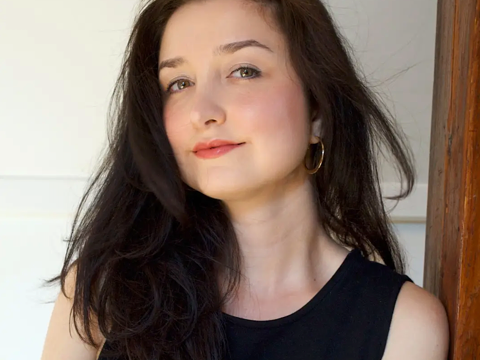
Jesse Faber
Jesse Faber (bass clarinet) played the violin as a child, but thanks in no small part to the pretty, clarinet-playing girl who sat next to him in class, he promptly changed allegiances. Luckily, he quickly became quite the clarinet fanatic: he won prizes at the Princess Christina competition, and at the age of 18 was already touring California and performing in New York. A particularly notable performance was in the Carnegie Hall with the trio of jazz pianist Jon Batiste, currently known for his work as bandleader on The Late Show with Stephen Colbert.
Jesse is a member of the Nieuw Amsterdams Klarinet Kwartet (The most fun ensemble on the Dutch stages) and the Nederlands Blazers Ensemble.
Jesse participates in the 'Mimic' project, bringing music to surgical wards in hospitals. He also works regulary with many orchestras and ensembles including The Metropole Orchestra, Ludwig ensemble, The Asko ensemble, The Netherlands Radio Philharmonic Orchestra and the Royal Concertgebouw Orchestra, with whom he has often toured.
Jesse is a proud inhabitant of Amsterdam Bos en Lommer, loves New Orleans swing music, his growling contrabass clarinet and is an incorrigible Francophile!
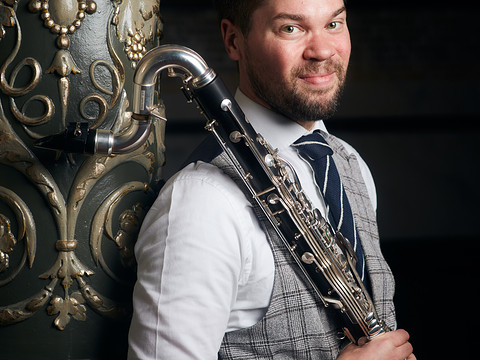
Karolien Dons
Dr Karolien Dons is senior researcher at the Research Centre Art & Society where she currently sets up the research group Music in Context. Innovative music practices in social contexts are her expertise. Recurring themes in Karolien's recent research activities are participatory art processes, engaged musicianship and ethical aspects in artistic practices. Karolien was part of the research group Lifelong Learning in Music where she contributed substantially to multiple research and innovation projects as researcher and project leader, including Meaningful Music in Healthcare (MiMiC) and Professional Excellence in Meaningful Music in Healthcare (ProMiMiC). Karolien studied musicology at Ghent University and music psychology at the University of Jyväskylä (Finland). In 2019, Karolien received her doctoral degree at Guildhall School of Music & Drama (London) with an ethnographic study into the facilitation of co-creative musicking with vulnerable elderly people.
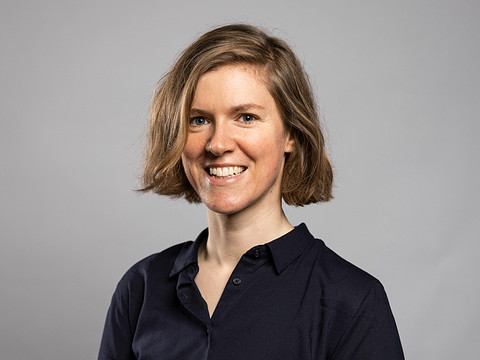
Maaike van der Linden
Maaike van der Linde is a flutist with a special place in her heart for the bass flute. As a performing musician she plays in the international ensemble Stargaze and with the Mimic Foundation with whom she plays at hospital patients' bedsides. Besides playing the flute, Maaike also enjoys singing and composing; she released her debut album Circadian in 2021. In 2020, she founded the Vox Sturnus choir, a group of 6 Amsterdam-based female composers and vocalists/instrumentalists who write new music together and perform each other's compositions.
Maaike works as a teacher at the conservatoires of Utrecht (HKU) and in Groningen (PCC) where she teaches the course Music in Care. Together with Geerte de Koe (violin), Maaike is artistic leader of Art Root Collective, a foundation that organises music projects and workshops for young musicians with a refugee background.
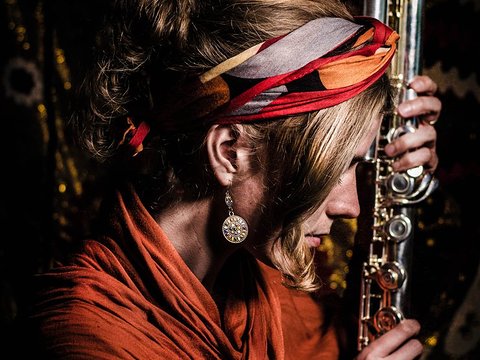
Magdalena Bork
Magdalena Bork (Mag.art. Dr.phil.) is a researcher and lecturer at the mdw – University of Music and Performing Arts Vienna, Austria. Initially trained as a classically-trained flautist, Magdalena Bork graduated in Hamburg and Vienna on the subject of artistic studies and conducts research into education and the work of professional musicians since 2003. Her dissertation on this subject "Dream Job: Musician?" was published 2010 by Schott Music and pointed out the high level of distress and pressure amongst active classical musicians due to a discrepancy between the expectations and skills taught in traditional classical music education on the one hand and the demands made on professional musicians by a changing cultural landscape, on the other hand. Magdalena Bork conceived the project "Quo vadis, Devil's Fiddler?". An artistic research project on the impact of improvisation on the development of classically-trained musicians. Another project 'Young Masters Research' focused on the development of exceptionally talented children and youngsters in music. Since 2016, Magdalena Bork has been leading the mdw talent lab. Here she is in charge of developing programmes for the individual support of young musicians.
In the international project ProMiMiC, Magdalena Bork researches the interprofessionality between musicians and music therapists in the hospital context.

Maria Gstaettner-Heckel
Maria Gstättner-Heckel is senior lecturer at the University of Music and Performing Arts (MDW), Vienna, Austria and she is involved in the ProMiMiC project as a musicians and teacher.
She has a Master's degree in bassoon performance, a Master of Advanced Studies degree in cultural management and a degree in instrumental pedagogy from the University of Music and Performing Arts, Vienna and obtained a Doctor of Arts at University of Music and Per-forming Arts, Graz.
Maria works as composer, freelance musician and artistic researcher. She is an internationally sought-after soloist and expert in free improvisation with the bassoon. She works in interdisciplinary projects around theatre, painting, dance and poetry. She is part of several ensembles: Klangforum Wien, Ensemble Phace and Studio Dan and performs with the Vienna Philharmonic Orchestra, the Radio Symphonic Orchestra Vienna (RSO) and the Vienna Symphonic Orchestra. As ensemble leader she started a project focusing on improvisation and world music called LAVA and produced three albums. Her focus on the use of the bas-soon in various art disciplines led to her Artistic Research Doctorate at Kunstuniversität Graz which she concluded in 2016 on the topic of 'Bassoon Performance - Improvisation Intuition Transformation.
More information: www.magst.at

Paul Craenen
Paul Craenen is a researcher, composer and a frequently demanded expert at the intersection of artistic practice, education and research. After graduating in piano and chamber music from the Lemmens Institute in Leuven, Craenen taught piano and experimental music for more than fifteen years. He was the driving force behind pioneering educational projects in new music and the use of new media in arts education. Since the end of the nineties, he has also worked as a composer and sound artist.
He received a PhD from Leiden University (2011) for artistic research on the status of the performing body in contemporary composed music. His book "Composing under the Skin. The music-making body at the composer's desk" (2014) has been published by Leuven University Press. He was the director of Musica Impulse Centre, a Flemish arts organisation, from 2012 to 2018. In early 2018 he was appointed head of the lectorate Music, Education and Society at the Royal Conservatory The Hague. His research currently focuses on the societal relevance of musical expertise. He is also a staff member at The Academy of Creative and Performing Arts (ACPA) at Leiden University, where he lectures and is involved as a supervisor for artistic research.

Paolo Paolantonio
Paolo obtained a PhD in Performance Science at Royal College of Music (London). In 2021 he won the call for case studies launched at the Swiss Forum Culture and Health: Alliance for a Sustainable Future. In the same year, the programme Music and Words, which he developed and heads since 2018, was included as a best practice in the Arts and Culture in every care home? report published by the Baring Foundation (UK). In 2022 he has been invited as a member of the scientific committee of the course Healing through music (Università della Svizzera Italiana, Lugano), and his project Supports through music for the well-being of the older population was awarded in the national call for projects Co-Designing Human Services promoted by the Swiss Association for the Promotion of Social Innovation. He is currently involved as researcher, coordinator and workshop leader in the multidisciplinary project Music Park, which addresses people with Parkinson.

Peter Alheit
Emeritus Prof. Dr. Dr. Peter Alheit studied theology, philosophy, sociology and education. He has a PhD in Philosophy of Religion and a PhD in Sociology of Education. He was professor in Social Education (University of Kassel), Adult Education (University of Bremen), International Comparative Educational Research (University of Bremen), and General Education (University of Goettingen). Peter Alheit was Director of the Institute for Biography and Lifeworld Research at the University of Bremen, Director of the Institute for Biography and Cultural Analysis of the Georg-August University of Goettingen.
He was guest professor in Swansea (UK), Florence (Italy), Rethymnon (Greece), Roskilde (Denmark), Vienna (Austria), Santa Maria (Brazil), Busan (South Korea), Thailand (Bangkok), and Xiamen (China).
Since 2011 he was consultant of the Research Group Lifelong Learning in Music of Prins Claus Conservatoire of Hanze University of Applied Sciences, Groningen (The Netherlands).

René van Munster
René van Munster (Amsterdam, 1989)
René is a versatile cellist with a great love of contemporary music. He has been playing with Cello Octet Amsterdam since 2017, where his qualities as a performer are developed in various genres. He also regularly 'devours' brand-new music with Oerknal Ensemble.
In addition, he composes electronic music and music for cello in which electronics play an important role. His music has been released by labels including Get Physical (DE) and Chasing Unicorns (GB).
René is involved in finding non-standard concert venues and new ways of performing music. In Mimic, he and other musicians play at patients' bedsides in hospital wards, using a mix of repertoire and improvisation to improve the well-being of patients and nurses. This led to the creation of the Mimic Music Foundation, a collective of musicians working in healthcare institutions, which René co-leads.
He also teaches person-centred improvisation at the Royal Conservatoire in The Hague and has given workshops in Denmark, England, Bosnia and Kosovo.
René studied cello at the Prince Claus Conservatoire in Groningen with Jan-Ype Nota and Michel Strauss and completed his Masters with distinction at Tokyo University of the Arts in Japan with Fumiaki Kono, for which he received grants from the Prins Bernhard Cultuurfonds, the Andrea Elkenbrachtfonds and the Fonds Podiumkunsten.
René plays a cello built in 2022 by Gudrun Kremeier.

Rineke Smilde
Rineke Smilde graduated from the Groningen Conservatoire with flute as principal study. She holds a master's degree in musicology (contemporary music and theoretical musicology) from Amsterdam University and a Ph.D. summa cum laude in Education from the Georg August University in Goettingen, Germany. Recently she became professor emeritus of Lifelong Learning in Music at the Prince Claus Conservatoire (Hanze University of Applied Sciences) in Groningen and at the University of Music & Performing Arts in Vienna. In Groningen, Rineke Smilde led the international research group 'Lifelong Learning in Music' that examined questions about the relationship between musicians and society, and what engaging with new audiences means for the different roles, learning and leadership of musicians. Since 2010, a prominent focus of her research has been on Music in Healthcare, with as main projects 'Music and Dementia' (2009-2014) and 'Meaningful Music in Healthcare' (2015 – 2017). Currently she leads the international research project ProMiMiC (2019-2023). Rineke publishes widely on different aspects of lifelong learning in (higher) music education.
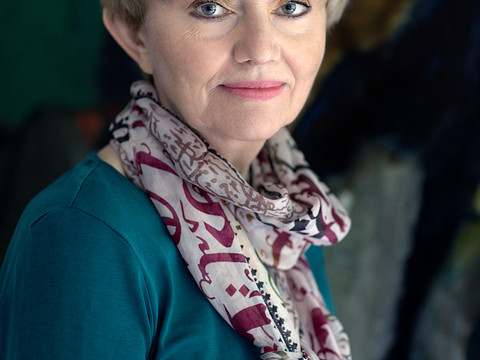
Rosie Perkins
Rosie Perkins is Professor of Music, Health, and Social Science at the Royal College of Music London (RCM). Based in the Centre for Performance Science, Rosie's research investigates two broad areas: how music and the arts support societal well-being and how to enhance artists' well-being, education, and career development. Rosie has particular interest in music and parental mental well-being, and is currently editing a volume on this topic for Oxford University Press (OUP). Her research has been supported by the Arts and Humanities Research Council (AHRC), Esmée Fairbairn Foundation, Arts Council England, British Academy, Dutch Research Council, and UK Research and Innovation (UKRI), and has featured in a wide range of international journals and press. Rosie also leads the RCM's MSc in Performance Science Masters programme and is a co-author on the textbook Performing Music Research: Methods in Music Education, Psychology, and Performance Science published by OUP in 2021. Rosie is an honorary Senior Research Fellow in the Faculty of Medicine at Imperial College London and a Fellow of AdvanceHE (FHEA) and the Royal Society for Public Health (RSPH). In 2019, Rosie was elected an Honorary Member of the Royal College of Music.

Sean Gregory
Professor Sean Gregory is a Vice-Principal and Director of Innovation & Engagement at Guildhall School of Music & Drama. He is responsible for developing and delivering a range of innovation, research & knowledge exchange and wider lifelong learning programmes across Guildhall School, and in partnership with the Barbican Centre.
Alongside working as a composer, performer and creative producer, he has led collaborative arts projects for all ages and abilities in association with many British and international orchestras, opera companies, theatres, galleries and arts education organisations.
Sean has held a number of roles at the Barbican Centre and Guildhall School of Music & Drama, including Director of Creative Learning, Head of the Centre for Creative and Professional Practice and Head of Professional Development. He set up and ran the Guildhall Connect programme which won the Queen’s Anniversary Prize in 2005 for its pioneering music leadership and creative ensemble activity with young people in East London.
Photo: Paul Cochrane

Stefan Heckel
Stefan Heckel
Stefan Heckel was born in Graz/Austria. He graduated with a Master in Jazz Piano from Graz Music University and continued to study at London's Royal Academy of Music achieving a Postgraduate Performance Diploma in Jazz Composition. He performs and records as pianist/accordionist in diverse musical projects ranging from jazz and improvised music to world and ethnic music. Stefan is a Senior Lecturer at the Graz Music University jazz department which he currently co-leads as deputy head of institute and teaches at JAM MUSIC LAB Vienna Private University.
He is involved in the ProMIMIC project as musician and tutor. He was chairman of the PJP (Pop&Jazz Platform) of the AEC (European Association of Conservatoires) from 2011-2017, participated in the Diversity, Identity and Inclusiveness - Working Group in the AEC project SMS (Strengthening Music in Society - 2017-2021) and is a working group member of the current AEC project ARTEMIS (Artists As Makers In Society).

Feedback component
Hoe tevreden ben jij met de informatie op deze pagina?